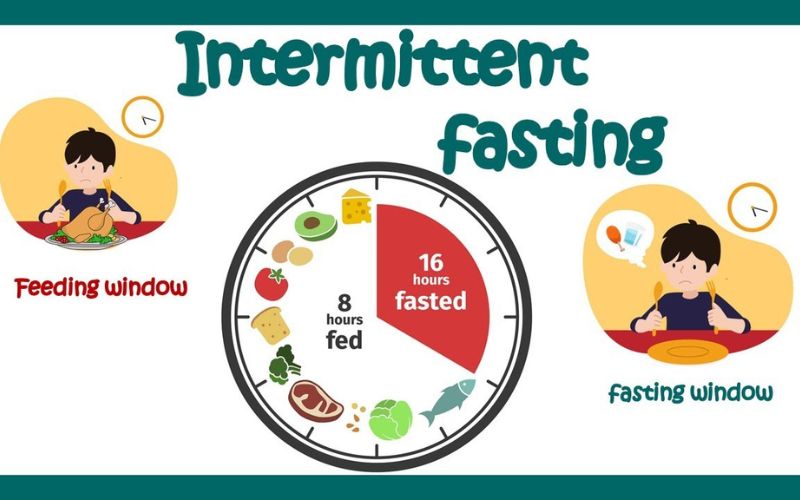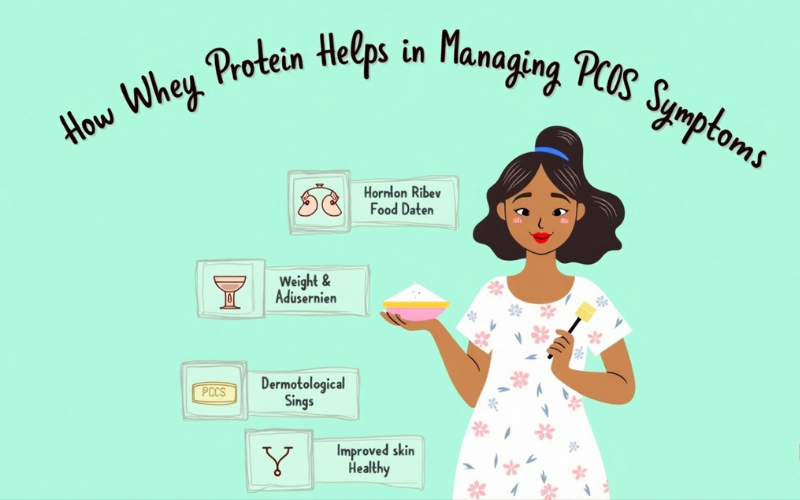Carbohydrate cravings can feel overwhelming, especially if you’re working toward a healthier lifestyle or managing conditions like diabetes or weight gain.
These cravings often push people toward refined sugars and starches, which provide quick energy but can lead to a cycle of dependency. Fortunately, by understanding their causes and adopting effective strategies, you can reduce these cravings significantly.
Table of Contents
Why Do We Crave Carbohydrates?
Carbohydrate cravings are not just about willpower; they often stem from a combination of physiological and psychological factors:
- Blood Sugar Fluctuations: When you consume refined carbs, your blood sugar spikes and then drops quickly, leading to more cravings.
- Stress and Hormones: Cortisol, the stress hormone, can increase your appetite, particularly for sugary and starchy foods.
- Emotional Comfort: Carbs are often linked to comfort eating, as they temporarily boost serotonin, the “feel-good” hormone.
Understanding Sugar Withdrawal Symptoms
When you reduce your carbohydrate or sugar intake—especially after long-term consumption of refined sugars—you may experience a temporary phase known as sugar withdrawal. This is a physiological response your body has as it adjusts to lower levels of glucose availability.
Common Sugar Withdrawal Symptoms:
- Headaches
- Fatigue or low energy
- Irritability or mood swings
- Strong cravings for sweet or starchy foods
These symptoms are usually short-lived, often lasting a few days to a couple of weeks, depending on your previous diet and metabolism.
How to Manage Sugar Withdrawal:
- Gradually reduce sugar rather than quitting cold turkey.
- Focus on protein- and fiber-rich meals to promote satiety.
- Stay hydrated and well-rested.
- Keep healthy snacks on hand to prevent relapsing into old habits.
Recognizing this phase as part of the process helps you stay committed and avoid reverting to carb-heavy foods for quick relief.
Understanding Food Cravings and Emotional Triggers
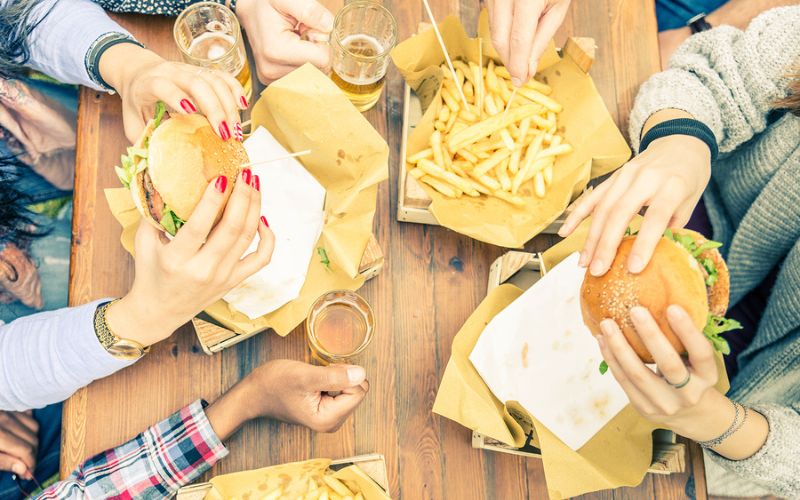
Carbohydrate cravings are often rooted not just in biology, but in emotion. Stress, boredom, sadness, or even hormonal changes (like PMS) can spark a desire for quick comfort through sugary or starchy foods.
Common Emotional Triggers for Carb Cravings:
- Stressful workdays
- Relationship issues
- Loneliness or boredom
- Hormonal shifts
How to Break the Cycle:
- Identify emotional patterns linked to your cravings by journaling.
- Practice alternative coping strategies like walking, deep breathing, or creative hobbies.
- Seek social support or professional counseling if emotional eating becomes frequent.
Awareness is the first step. Once you identify your emotional triggers, you can address the root cause rather than masking the discomfort with food.
Practical Strategies to Reduce Carbohydrate Cravings
There’s no one-size-fits-all approach to managing cravings, but several strategies can help. Below are a variety of techniques to consider:
Start Your Day with a Balanced Breakfast
Skipping breakfast or consuming a high-carb meal in the morning can set the tone for a day full of cravings. Instead, focus on a balanced breakfast that includes:
- Protein: Eggs, Greek yogurt, or a protein shake.
- Healthy Fats: Avocado, nuts, or seeds.
- Fiber: Vegetables or whole grains like oats.
A well-rounded breakfast stabilizes blood sugar levels and keeps you feeling fuller for longer.
Prioritize Protein and Healthy Fats Throughout the Day
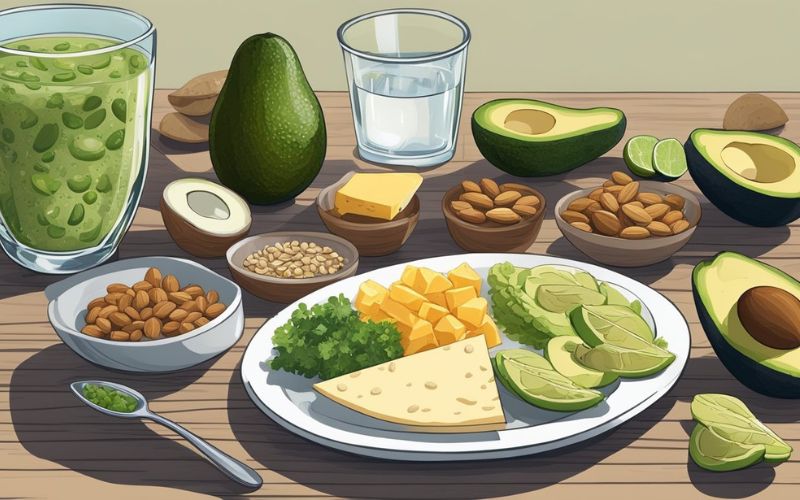
Protein and healthy fats are crucial for satiety. They slow down digestion, providing a steady energy release and reducing the need for quick energy fixes like carbs.
- Examples of Protein Sources: Chicken, fish, tofu, legumes.
- Healthy Fat Options: Olive oil, fatty fish, chia seeds.
Incorporating these macronutrients into every meal can help combat cravings effectively.
Stay Hydrated
Often, what feels like a craving for carbs is actually thirst. Dehydration can mimic hunger and lead to poor food choices.
- Daily Water Intake: Aim for 8-10 glasses of water daily.
- Enhance Hydration: Add a slice of lemon or cucumber to your water for flavor.
Staying hydrated not only curbs cravings but also boosts energy levels and supports overall health.
Tips for Long-Term Success
Managing carbohydrate cravings isn’t just about immediate fixes; it involves building sustainable habits over time. Below are some additional tips for maintaining long-term control over your diet.
Manage Stress Levels
Chronic stress is a common driver of cravings. When stressed, the body releases cortisol, which can increase your appetite, particularly for high-carb, comfort foods.
- Stress Reduction Techniques:
- Practice mindfulness or meditation.
- Engage in regular physical activity like walking or yoga.
- Make time for hobbies that relax you.
Learning to manage stress effectively can significantly reduce your dependence on carbs for comfort.
Improve Sleep Quality
Sleep plays a critical role in regulating hunger hormones like leptin and ghrelin. Poor sleep increases ghrelin (which stimulates appetite) and decreases leptin (which signals fullness), leading to stronger cravings for high-carb foods.
- Establish a Sleep Routine: Go to bed and wake up at the same time daily.
- Create a Sleep-Friendly Environment: Keep your bedroom dark, quiet, and cool.
A good night’s sleep not only improves energy levels but also helps curb unnecessary cravings.
Plan Your Meals and Snacks
One of the most effective ways to combat cravings is to plan your meals and snacks in advance. This reduces the likelihood of impulsively reaching for carb-heavy options when hunger strikes.
- Prepare Healthy Snacks: Keep options like nuts, hard-boiled eggs, or veggie sticks with hummus readily available.
- Batch Cook Meals: Cook large portions of healthy meals and store them for easy access throughout the week.
Having healthy options on hand makes it easier to stick to your dietary goals.
Mindful Eating: A Powerful Tool
Mindful eating is about being present during meals and truly savoring each bite. It helps you recognize hunger and fullness cues, preventing overeating and reducing cravings.
How to Practice Mindful Eating:
- Eat Slowly: Take your time with each bite, chewing thoroughly.
- Eliminate Distractions: Avoid eating while watching TV or scrolling through your phone.
- Pay Attention to Portions: Serve yourself smaller portions and listen to your body’s signals.
This approach not only reduces cravings but also helps you enjoy your meals more fully.
Allow Room for Flexibility
Completely cutting out carbs can lead to feelings of deprivation and stronger cravings. Instead, focus on moderation and healthy swaps:
- Healthy Substitutions: Use cauliflower rice, zucchini noodles, or almond flour to replace refined carbs.
- Enjoy Occasional Treats: Allow yourself small portions of your favorite carb-rich foods occasionally. This can help prevent binging and maintain balance.
The Role of Fiber in Managing Cravings
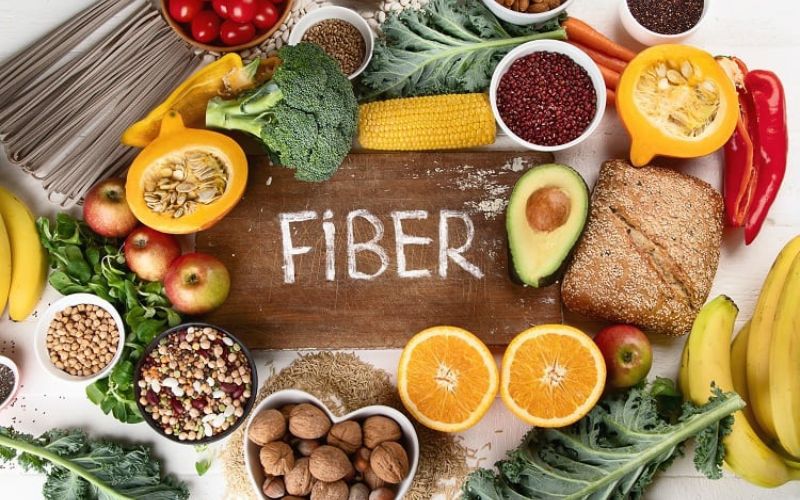
Dietary fiber is a key player in controlling carbohydrate cravings. It slows digestion, stabilizes blood sugar levels, and helps you feel full longer—reducing the likelihood of reaching for sugary or refined foods.
High-Fiber Foods to Include:
- Vegetables (broccoli, spinach, carrots)
- Whole fruits (especially with skin)
- Whole grains (oats, brown rice, quinoa)
- Legumes (lentils, chickpeas, black beans)
- Seeds (chia, flaxseed)
Why Fiber Helps:
- Slows glucose absorption to prevent energy crashes.
- Promotes gut health, which is linked to better appetite regulation.
- Encourages mindful eating by increasing the volume of meals.
Aim to include fiber in every meal, especially alongside proteins and fats, to form a balanced and satisfying plate.
Incorporating Strength Training
Exercise plays a vital role in controlling cravings, and strength training is particularly effective. Resistance-based workouts help regulate appetite hormones and improve insulin sensitivity, both of which reduce the urge to consume simple carbohydrates.
Benefits of Strength Training for Cravings:
- Increases muscle mass, which helps with better glucose utilization.
- Lowers cortisol levels, reducing stress-induced eating.
- Enhances the release of feel-good endorphins, which can mimic the serotonin boost you get from carbs.
Beginner-Friendly Strength Training Ideas:
- Bodyweight exercises (squats, push-ups, lunges)
- Dumbbell or kettlebell workouts
- Resistance band routines
- Pilates or functional training
Start with two to four sessions per week for optimal results. Combine this with adequate rest and protein intake for best outcomes.
The Impact of Meal Timing on Cravings
The timing of your meals can greatly influence your hunger cues and cravings. Skipping meals or eating too late can disrupt your body’s hunger-regulation hormones, leading to stronger urges for carb-dense foods.
Smart Meal Timing Tips:
- Eat a substantial breakfast rich in protein and healthy fats.
- Don’t let more than 4–5 hours pass between meals.
- Avoid large meals late at night when your metabolism is slower.
- Try front-loading your calories by consuming more earlier in the day.
Regular, well-timed meals help your body maintain stable blood sugar levels and reduce the likelihood of sudden, uncontrollable cravings.
Final Thoughts
Carbohydrate cravings are a common challenge, but with the right strategies, they can be managed effectively. By focusing on balanced nutrition, mindful eating, stress management, and proper hydration, you can reduce cravings and improve your overall health.
Remember, it’s not about perfection but progress. Small, consistent changes can lead to significant improvements over time.
















